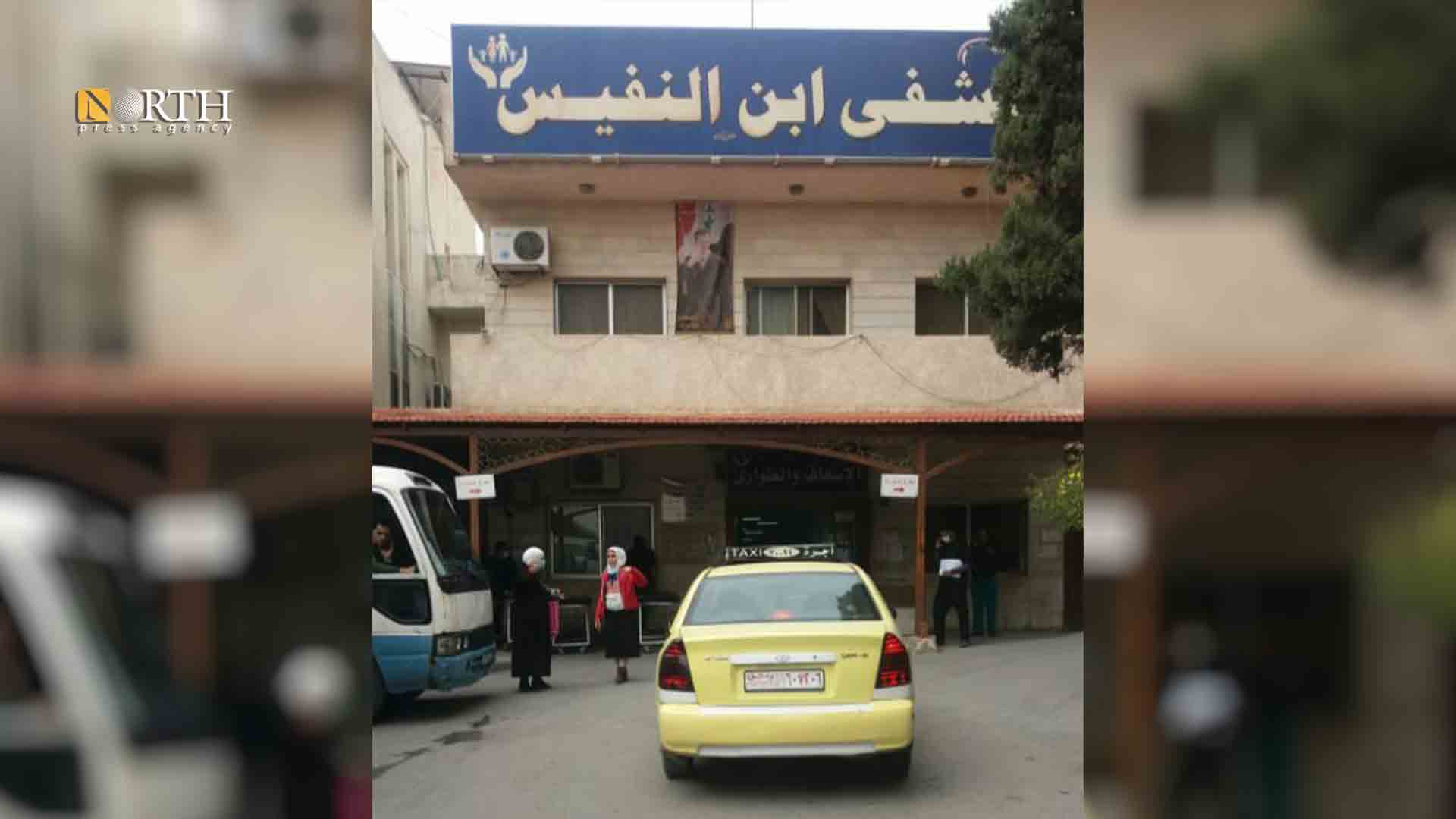DAMASCUS, Syria (North Press) – Doctors staying in the Syrian capital Damascus say they are torn between providing their services in hospitals for low salaries and moonlighting to manage their living.
After graduating, students of the Faculty of Medicine begin specialization training, and are classified as resident doctors in the Ministry of Health or Higher Education’s hospitals.
During the 5 or 6 years of residency, the resident doctors receive a salary of 50,000 Syrian pounds (SYP), equivalent to 12 dollars.
Extra work
For six months, Suliman al-Khatib (a pseudonym), a resident doctor, has been working as a promoter of products for a pharmaceutical company among the city’s doctors and pharmacists.
“Fortunately, my work sphere is limited to the hospital’s surrounding area where I can ask for daily and hourly leave,” al-Khatib, who specializes in surgery at Mouwasat University Hospital, said.
He told North Press that he is not sure how many years he will spend in a rented house, in addition to having to borrow money from his acquaintances sometimes to meet his needs.
The government salaries continue to lose most of their value with the collapse of the local currency, which reached 4,120 against the dollar on Sunday in the markets of Damascus.
“I want neither the salary nor the work in the hospital,” al-Khatib said.
Fraudulent solutions
Doctors say the weak purchasing power of the government salary and their need to complete their specializations pushes them to search for measures that will help them, and that may include “fraudulent solutions.”
27-year-old Ali Waddah (a pseudonym), a resident doctor in Red Crescent Hospital in Damascus, said that another resident doctor covers his shift in return for 8,000 SYP per shift.
He added that he resorted to this so he will be able to work with a civil organization in Rif Dimashq, which he relies on to sustain him.
However, he has relied on unpaid monthly leaves or sick leaves, “as selling the shifts has become more expensive than what the salary endures.”
During one year of specialization, resident doctors are allowed to take three months unpaid, 15 days administrative, and 30 days of sick leave.
Next month is the last month Waddah can take leave, and he does not know what will he do after that to avoid going to the hospital, “which has become a hindrance to our lives after years of studying and hard work,” Waddah added.
No chances for others
Not all residents will be able to find job opportunities that match their work at the hospital and are tied to their specializations.
The working hours of resident doctors may reach 96 hours per week, depending on administrative hours, night shifts, and holidays.
26-year-old Firas Abu Ismail (a pseudonym), a surgical resident doctor in the General Authority of Ibn al-Nafees Hospital in Damascus, is forced to travel all the way to his relatives’ home in Suwayda after finishing his shift at the hospital.
“I cannot afford to rent and live in Damascus,” Ismail said.
He explained that he shares a bed with his friend, who secured housing in the hospital when he has a shift, in order to save himself the cost of travelling to Suwayda.
”I am thinking of moving to Suwayda, even though the hospital there is not up to the level of an infirmary,” he added.
28-year-old Amjad Masheet, a resident doctor in the ENT department of the General Authority of al-Mujtahid Hospital, said he is unable to secure his expenses during the shifts, which require 8,000 SYP for a meal, masks, and supplies.
“The meals provided in the hospital are not satisfying, and the masks they distribute in the hospital are of very poor quality,” He added.
He pointed out that his family is still sending him sums of money and basic necessities.
After ten years of war, two million Syrians suffer from extreme poverty, while more than 12 million inside the country strive hard to secure their food, according to statistics recently published by World Food Programme.

